Please answer 1921. The red experience here is really interesting. It not only revises history, but also visits the ancient town
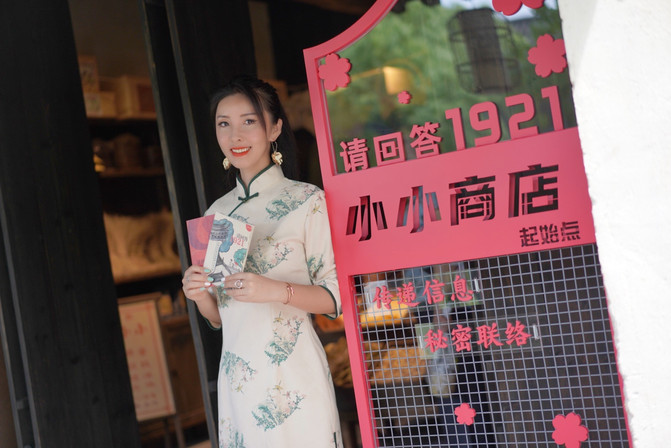
This year is an important year for the 100th anniversary of the founding of the Party. Red tourism commemorative activities with this theme have been launched across the country, and Yu Fan has also participated in many. However, among these many activities, I feel that the immersive red route in Lili Ancient Town in Suzhou The experience is the most unique, because tourists can participate in it and experience the red years of that year through their own experiences.
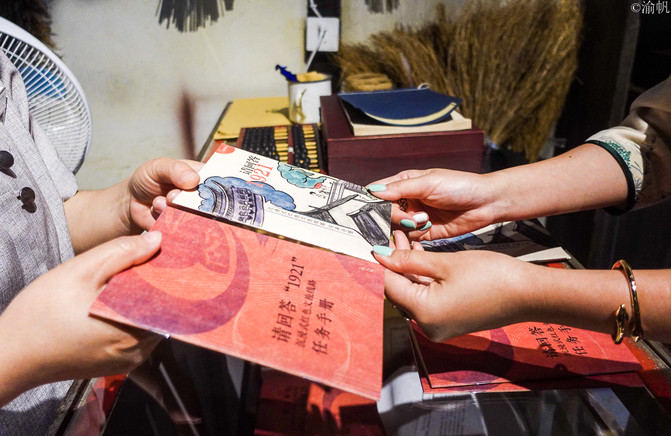
Back in 1921, 100 years ago, Lili was not called Lili at that time, but Lihuali. There was a small shop on the edge of Taiping Bridge. The appearance did not look unusual, but it was actually a secret contact point for the Wujia Working Committee, and our activities started here. If we match the secret code here, we can receive a task. The task has two parent-child version and adult version.
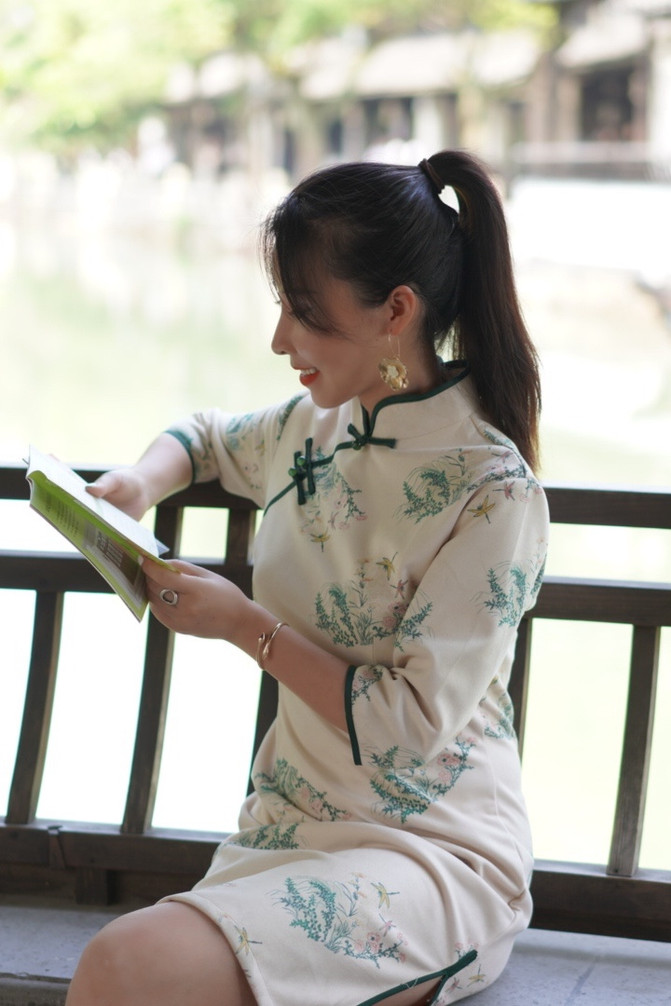
After Yaya, a beautiful woman from Shanghai, received the task, she sat on the beauty bank by the river in Lili City and began to carefully understand the relevant requirements in the task manual so that she could formulate relevant plans.
The first task is to hold the task manual and take a photo with the ancient bridge in Lili. Although Lili is not big, there are more than 30 stone bridges of various shapes. Eight of them are ancient bridges of the Ming and Qing Dynasties that are well-preserved today. There are popular local saying such as "you will have two bridges" and "two bridges up and down in three steps". It can be seen that there are really many bridges in the ancient town of Lili. The bridge in the picture above is a round arch bridge called Daonan Bridge, which was built during the Kangxi Period of the Qing Dynasty.
The second task point is "Xieyuan Mixing". It is said that during the War of Liberation, the Kuomintang reactionaries ruled extremely strictly. When higher-level party organizations sent people to contact and work, in order to reduce risks, they usually brought only one document, which could not satisfy the comrades 'enthusiasm for learning.
So in the winter of 1947, in order to solve this problem, the Lili Party branch of the Communist Party of China set up an underground printing factory in the bedroom of Ping Ning, the head of the Party branch, upstairs of the backward warehouse of Xieyuan Rice Store on the edge of Daonan Bridge, to print documents disseminated by higher-level party organizations. During the event, after we came to the rice store to match the secret code, the task was to print a flyer behind it, and the staff would stamp a pear flower stamp on the task manual.
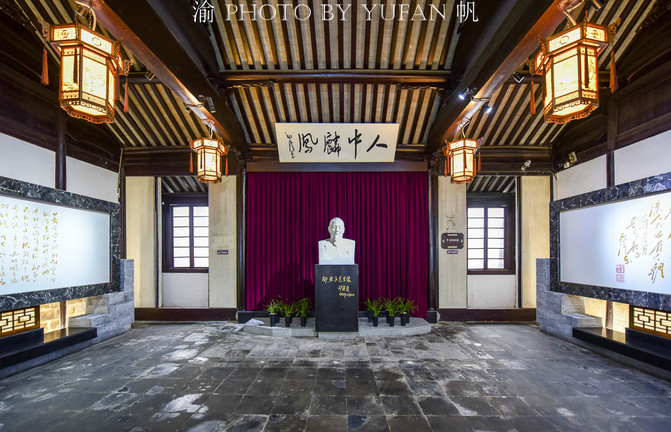
The third task point of the activity was "Liu Yazi's Former Residence". Liu Yazi was a famous patriotic poet in modern times, and Lili Ancient Town was his hometown. He used poetry to record the times throughout his life and wrote a large number of high-spirited patriotic poems. Late one night in 1927, more than a dozen military police rushed to Lili and surrounded Liu Yazi's place. Finally, he hid in the compound wall before escaping.
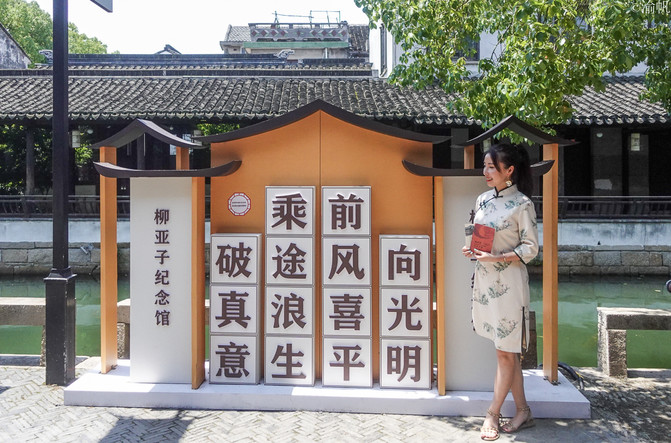
The task of this task point is to find two sentences of Liu Yazi's two invisible poems among the 14 words in front of Liu Yazi's former residence. In the end, Yaya gave the answer from Liu Yazi's "Leaving for Work on February 28". The two sentences "The future is really happy and bright" and "The wind and waves will smooth business"(there are hints in the task manual).
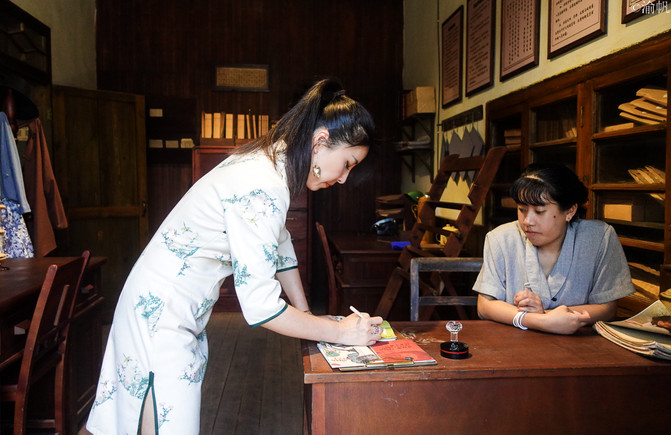
The fourth stop of the activity mission was the "Repelling the Bandit Hu Bolong Office". On the eve of the liberation of Lili in 1949, the bandit Hu Bolong pretended to be the People's Liberation Army and attempted to "take over" Lili. Under the emergency arrangements and command of the Lili party organization, armed forces were deployed to repel the attack of Hu Bolong and other bandits in Shajiaqiao Lane, Loushuabang, Nanzha Bangkou, and Nangang. The fighting lasted for more than three hours, and finally preserved Lili's weapons, food, archives, etc., so that the people of the whole town avoided a catastrophe.
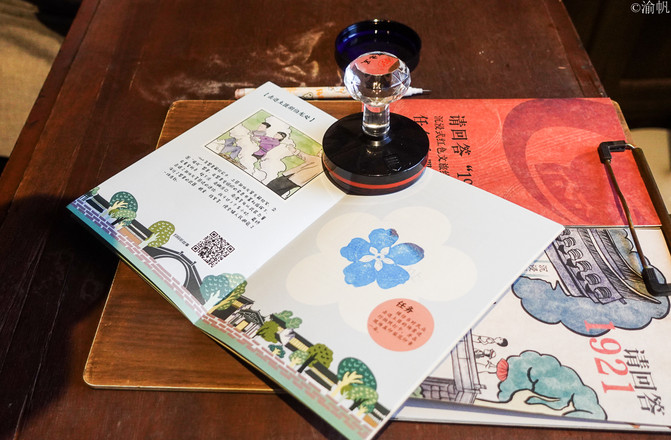
The task here is to imitate the scene of people repelling bandits at that time to take photos and check in, and ask the on-site staff to stamp it with a pear flower seal to complete the task.
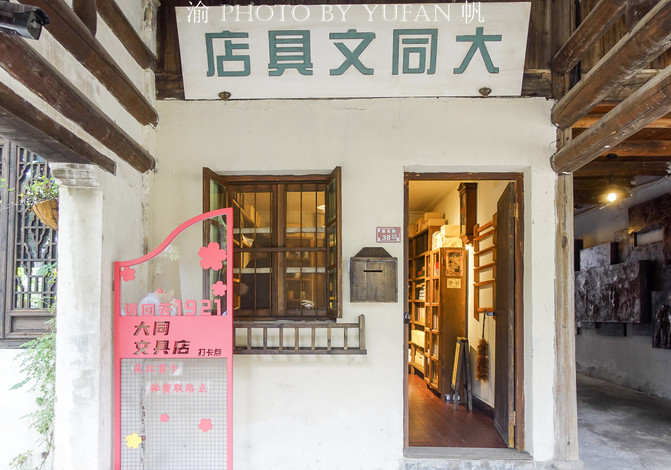
The fifth mission point of the activity is "Datong Stationery Store". This stationery store is located at Wangjialongkou on the west bank of Lili Temple Bridge. The stationery store is not large in size and looks no different from ordinary stationery stores. At the beginning of 1941, Xia Minghui, commissioner of the Songhu Central County Committee of the Communist Party of China, went to Lili to open an underground secret contact point. With the help of Jin Peiyang, an underground member of the Communist Party of China, he used Datong Stationery Store as a cover to develop the party organization and secretly carry out the party's upload and dispatch work.
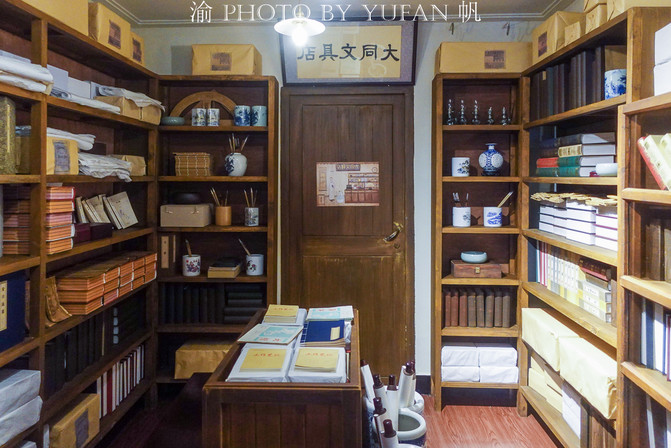
During the event, the task of Datong Stationery Store was to find out obvious mistakes in a painting in the store, and then asked the store staff to stamp a blue pear flower seal in the task manual to complete the task.
The sixth stop of the event was the "Lili Ancient Town Regional Party Building Workstation", which mainly introduced the party building work in the history of Lili Ancient Town and the introduction of important figures. In 1916, Yuan Shikai claimed that the emperor changed the year name to Hong Xian. Lili Girls 'Primary School was forced to use the year name of Hong Xian. One day, it was Zhang Yingchun and Liu Yazi's fourth sister, Liu Junquan, who were on duty. After discussion, they resolutely wrote the four words "Year of the Republic of China" in the "Classroom Journal" and denounced Yuan Shikai for his perverse crimes.
The task here is to tell the staff the names of three Lili Communist Party members and ask the staff to stamp a red pear flower seal on the task manual to complete the task.
After completing all the tasks at the six task points, you can go to the Visitor Center of Lili Ancient Town to print a photo taken during the event (you can print out the photo on your mobile phone by scanning the code on your mobile phone) and paste it on the mission completion souvenir form.
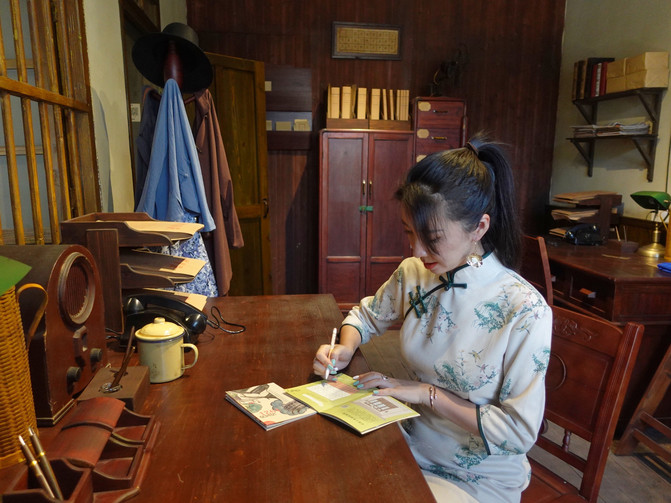
The red element in Lili Town has a strong "gene" in history. In addition to patriotic poet Liu Yazi and Zhang Yingchun, the first female party member of Nanshe and Wujiang, Lili also has many red stories. The patriotic movement in Lili went deep into the countryside and took root among the masses. The new intellectuals represented by Liu Yazi are committed to civilian education and awaken the people's patriotic consciousness and revolutionary enthusiasm.
It is understood that the reason why the event was named "Please answer 1921" has two meanings in total. The first level is the literal meaning. Questions are set for different points on the task card, and the answers must be answered on the spot; the second level is the extended meaning. Revolutionary Party members use their sweat, blood, and life to strive for a better life. How should people use today? Answer them and respond to them? This kind of activity is very interesting. It not only revises the glorious journey, but also visits the ancient town of Lili. It will be even more interesting if you bring your family and friends to play together. What do you think?
Previous Article:Humble Administrator's Garden, Mother of Gardens in the World (Part 1)-Suzhou 2 (2)
